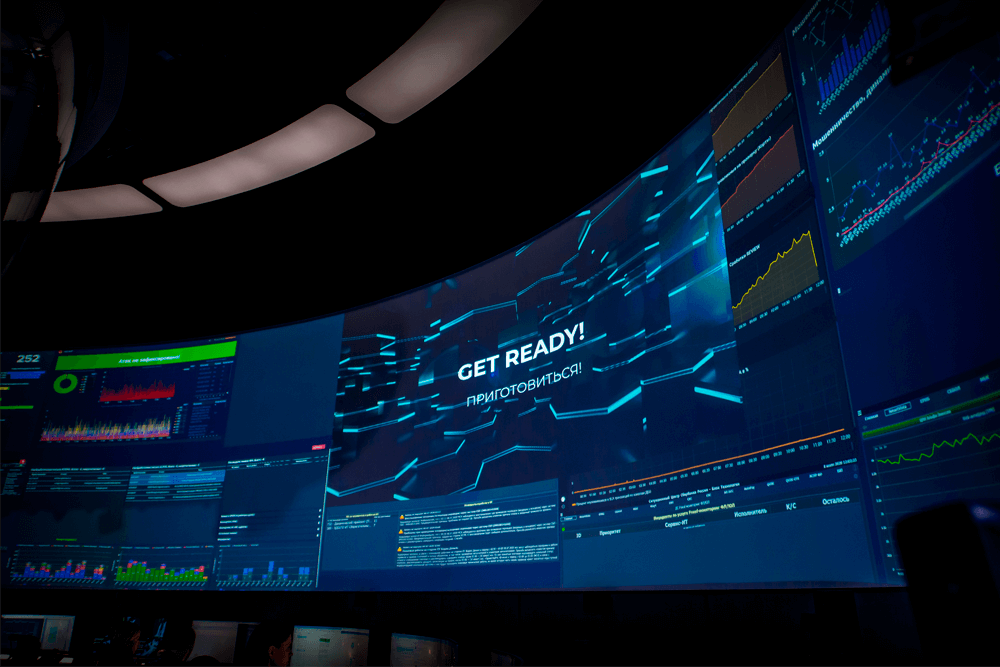
3 February 2021, Moscow — Cyber Polygon 2021, the international online cybersecurity event, is scheduled for the 9th of July. This year, it will be dedicated to the secure development of digital ecosystems. The event is hosted by BI.ZONE — an expert in strategic management of digital risks (a part of Sber Ecosystem), and with the support of the World Economic Forum (WEF) Centre for Cybersecurity and INTERPOL. This is an annual event with 2021 marking its third occasion.
The key objective of Cyber Polygon is to enhance cybersecurity across all levels. It will traditionally feature two parallel tracks: an online conference for the general public and practical activities for security specialists.
The conference will bring together speakers to discuss the key risks posed by digitalisation and share best practices in developing secure ecosystems. The participants of the technical training will practise their skills in mitigating a targeted supply chain attack.
One of the new features to be introduced this year is the real-time updates for cybersecurity specialists who couldn’t join the exercise. On the day of the event, recorded presentations from cybersecurity experts and the organisers’ insight into the training scenarios will be posted to the Cyber Polygon website. The materials will also be available after the event.
The key message voiced by experts at WEF and other international platforms is that supply chain security is to become a major cybersecurity issue in 2021. The ever-expanding digitalisation tightens the interconnectivity between people, devices, companies and countries. Thus, the resilience of an entire system depends on the ability of each link within a chain to withstand threats of various grades.
‘The example of Sber demonstrates how in as little as 10 years a traditional bank can transform into a high-tech ecosystem with a wide array of non-financial services. Today, as we see similar digital transformations ongoing worldwide, we are ready to share our experience, which is why we are organising Cyber Polygon. The resilience of large-scale digital systems must be maintained through regular risk assessments and continuous monitoring of the IT perimeter for changes and new threats. It is through knowledge sharing that we can push the industry forward and help businesses adapt to the fast-paced environment’, highlighted Stanislav Kuznetsov, Deputy Chairman of the Executive Board, Sberbank.
‘Trainings play a key role in building and testing organizational preparedness, which is essential to respond effectively during an actual cyber crisis. It is vital to include public and private sector actors to build resiliency in our global system’, commented Jeremy Jurgens, Chief Business Officer and Member of the Managing Board, World Economic Forum.
‘We are all part of various ecosystems that make up our world. While we are rapidly adopting new technologies and investing ever more resources to their development, we don’t always follow the rules when it comes to security in the digital space. This poses many high risks since the resilience of a large number of components determines the well-being of the entire global community. That is why the security of digital ecosystems will become the key theme at Cyber Polygon 2021. The event enables both top management and technical specialists to develop their cyber skills as well as implement best practices in their organisations’, shared Dmitry Samartsev, CEO, BI.ZONE.
‘Securing digital ecosystems is of upmost importance for our digital economies to thrive. INTERPOL is part of the digital ecosystem, working closely with private and public partners to reduce the impact of cybercrime and project communities for a safer world. We need to build resilient, agile and sustainable ecosystems to be able to overcome the challenges and threats given the ever-evolving nature of cybercrime’, remarked Craig Jones, Cybercrime Director, INTERPOL.
Last year, the live stream attracted 5 million spectators from 57 nations. The technical training gathered 120 of the largest Russian and international organisations from 29 countries. The teams practised targeted attack response, aimed at compromising company data and undermining its reputation. The attackers’ actions were simulated by the BI.ZONE team.



